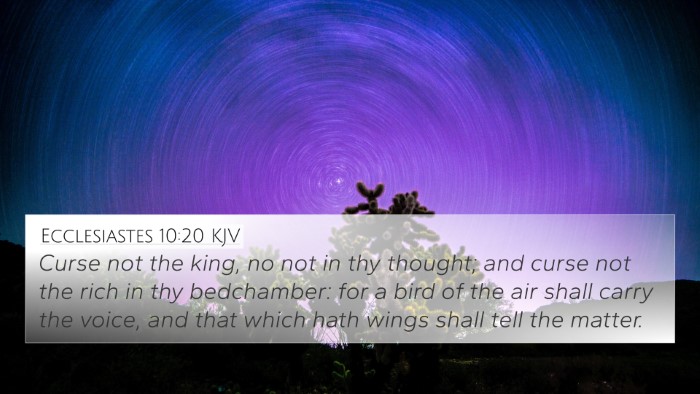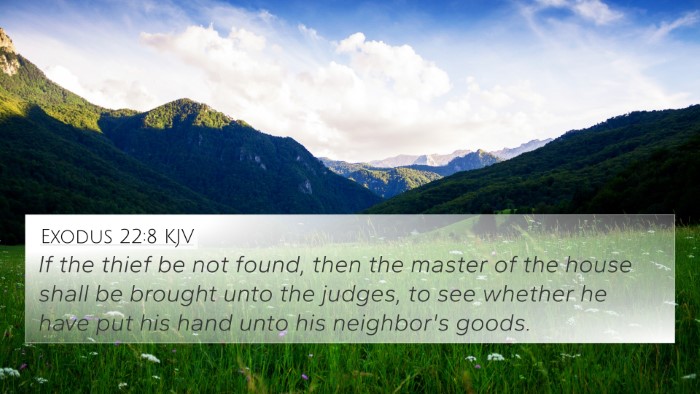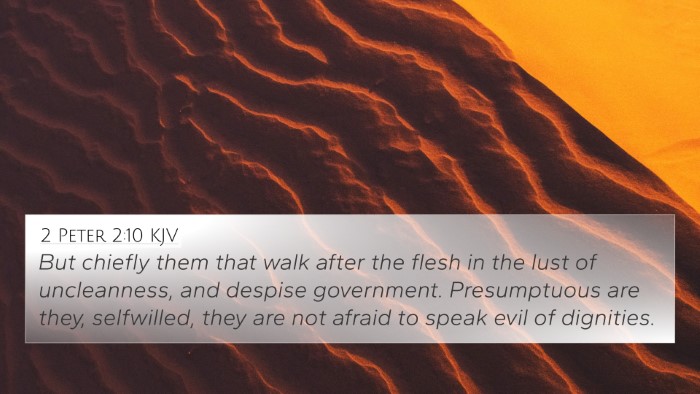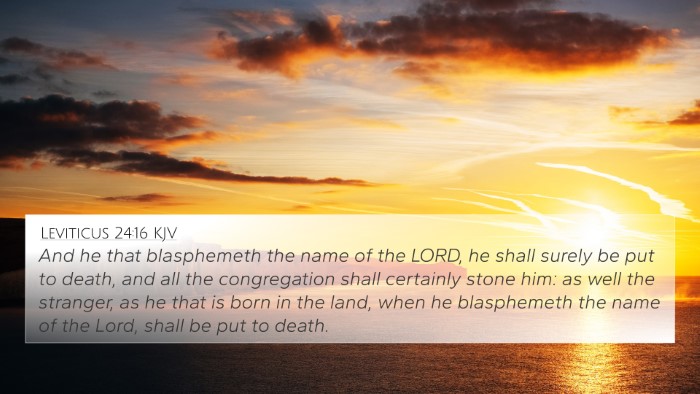Understanding Exodus 22:28
Exodus 22:28 states: "You shall not revile God, nor curse a ruler of your people." This verse holds significant moral and ethical weight, emphasizing respect and reverence for both the divine and human authority. Below is a comprehensive analysis of its meaning, insights from respected public domain commentaries, and its connections with other Bible verses.
Verse Meaning
This verse serves as a commandment that underlines two central themes: respect for God and respect for leaders. The instruction not to “revile God” points toward acknowledging God’s sovereignty and holiness, while the admonition against cursing “a ruler of your people” highlights the importance of respecting authority figures.
Insights from Commentaries
-
Matthew Henry:
Henry emphasizes the cultural context in which leaders were held in high regard, suggesting that cursing them reflects a lack of respect not only for human authority but also for God, who ordains leaders.
-
Albert Barnes:
Barnes points out that by reviling God, individuals show ingratitude and disrespect towards their Creator. His commentary suggests that authority figures should be respected as representatives of God's order in society.
-
Adam Clarke:
Clarke elaborates on the implications of this commandment, indicating that God’s name is sacred and must not be used lightly. His interpretation underscores that cursing rulers destabilizes societal order and harmony.
Key Themes
- Respect for Divine Authority: Acknowledges God’s ultimate position of power and the need for reverence.
- Respect for Human Authority: Encourages followers to honor earthly leaders as a reflection of their relationship with God.
Bible Cross-References
Below are relevant verses that connect thematically with Exodus 22:28, showing the underlying biblical principle of honoring authority:
- Romans 13:1: "Let every person be subject to the governing authorities..." This verse illustrates the importance of submitting to authorities as ordained by God.
- 1 Peter 2:17: "Honor everyone. Love the brotherhood. Fear God. Honor the emperor." This reinforces the call to respect both God and earthly rulers.
- Proverbs 24:21: "My son, fear the Lord and the king..." This emphasizes fearing both God and king as wise counsel.
- Titus 3:1: "Remind them to be submissive to rulers and authorities..." Again highlights the need to respect governing bodies.
- Matthew 5:33-37: This passage discusses oaths and the importance of truthfulness, which connects to the integrity one should exhibit towards God and leaders.
- 1 Timothy 2:1-2: "I urge that petitions, prayers, intercessions, and thanksgivings be made for everyone, for kings and all those in authority..." This calls for prayers for leaders, further indicating their importance.
- Ecclesiastes 10:20: "Do not curse the king, even in your thoughts..." This reinforces the admonition against speaking ill of those in power.
Connecting Themes Across Scripture
Exodus 22:28 does not stand alone; it encapsulates a broader scriptural mandate calling for respect and acknowledgment of both divine and human authorities. These verses can serve as tools for understanding the biblical perspective on governance and fidelity to God.
By using a Bible concordance or a cross-reference Bible study approach, readers can explore more about how these verses relate to each other, enhancing their understanding of biblical contexts.
Practical Application
Applying the principles of Exodus 22:28 in daily life involves recognizing the significance of respectful discourse regarding God's name and our leaders. Here are practical steps:
- Prayer for Leaders: Committing to pray for political and community leaders as an act of respect.
- Mindful Speech: Being aware of how one speaks about God and leadership figures, ensuring it reflects reverence.
- Education on Authority: Understanding the roles of spiritual and civil leadership through scripture to cultivate respect within communities.
Conclusion
Exodus 22:28 serves as a profound reminder of the necessity of respecting God and those whom He places in authority over us. By aligning our actions and thoughts with the teachings of this scripture and referencing associated verses, we can foster a life marked by respect, integrity, and a deeper understanding of God's order in the world.




















